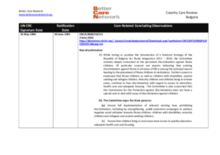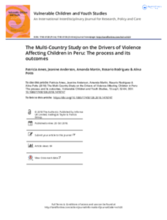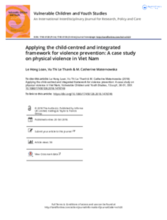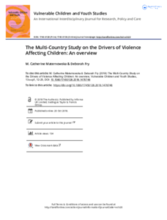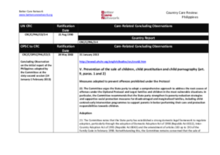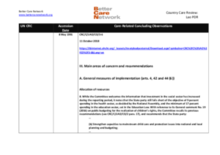Displaying 501 - 510 of 1796
This paper presents community dialogues as a participatory research and program development strategy through which developmental scientists and local community partners can collaboratively surface, discuss, address, and evaluate child protection and well-being issues in their communities.
This country care review includes the care-related Concluding Observations adopted by the Committee on the Rights of the Child and the Committee on the Rights of Persons with Disabilities.
This article presents the Peru results as part of the Multi Country Study on the Drivers of Violence Affecting Children.
This article presents the findings of a study that set out to understand what drives violence in Viet Nam as part of the Multi-Country Study on the Drivers of Violence Affecting Children.
This paper describes the underpinning principles and frameworks of the Multi-Country Study on the Drivers of Violence Affecting Children conducted by national research teams comprising government, practitioners and academic researchers in Italy, Peru, Viet Nam and Zimbabwe.
This country care review includes the care related Concluding Observations adopted by the Committee on the Rights of the Child and the Committee on the Rights of Persons with Disabilities.
This study sought to find out the current numbers of autistic Looked-After children formally recorded across local authorities in England, and whether their needs are given special attention via strategic planning and oversight, using Freedom of Information (FoI) requests sent to all local authorities in England.
This article investigates policy in the Philippines relating to the protection of children, which, despite policy efforts in this space, and growing evidence of child maltreatment and its impact, remains unexamined by the literature.
This country care review includes the care related Concluding Observations adopted by the Committee on the Rights of the Child as part of its examination of Lao PDR's initial reports, as well as other care-related concluding observations, ratification dates, and links to the Universal Periodic Review
This country care review includes the care-related Concluding Observations adopted by the Committee on the Rights of the Child.

